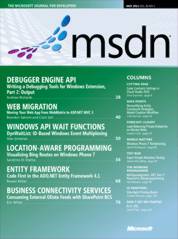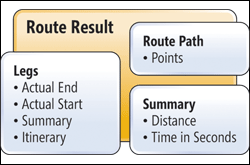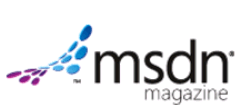| Performance in May's MSDN Magazine |
| Written by Mike James | |||
| Sunday, 08 May 2011 | |||
|
There is a varied clutch of feature articles in May's MSDN magazine and Performance is their unifying theme. I'm not entirely sure why as the articles seem to be on anything but "performance".
One article that is on a distinct topic stands out - Location-Aware Programming: Visualizing Bing Routes on Windows Phone 7 which shows how to bring location-aware features into Windows Phone 7 applications and visualize routes and locations in different ways as you build an app (code sample downloadable) that shows you the location of nearby restaurants.
It's not exactly the travelling salesman problem but it is more useful! We have two articles on web development. The first deals with using Sharepoint's Business Connectivity Services and describes how to import external data feeds to Sharepont by binding a custom connector. The second deals with moving from WebMatrix, Microsoft's beginner's kit, to a full ASP.NET implementation. The idea is that the practice of using WebMatrix of a way of getting up and running quickly is almost sure to be followed by a need to migrate to a more capable programming environment. Notice that in this case ASP.NET means ASP.NET MVC - it really does seem that the classic approach to ASP.NET is out of favour. There are also two "low level" articles. Part 2 of a look at writing a debugging tool for the Windows extension is a bit of a niche read, but it's still interesting to see how the other 0.001% live! The article on Windows API Wait Functions isn't so niche but still a bit specialized even for a C++ programmer. The full title of the article is "DynWaitList: ID-Based Wndows Event Multiplexing" and this is descriptive of the content which explains how to build a container class that holds event handles and uses WaitForMultiple Objects to implement an easy to use multi-source event system. Finally we have a feature on using the Entity Framework with "Code First". In this case Code First means that the data model is defined by the classes you create. These can then be mapped to an existing database or used to create a new database schema. Given that Entity Framework is still considered new territory by most this is a useful article that also details how to get started. Other highlights in the regular columns include Charles Petzold on Silverlight printing basics, Jaime Rodriguez on Phone 7 tombstoning and Dino Esposito on code contracts in VS 2010. A full list of contents can be found at:
More information:
|
|||
| Last Updated ( Sunday, 08 May 2011 ) |



